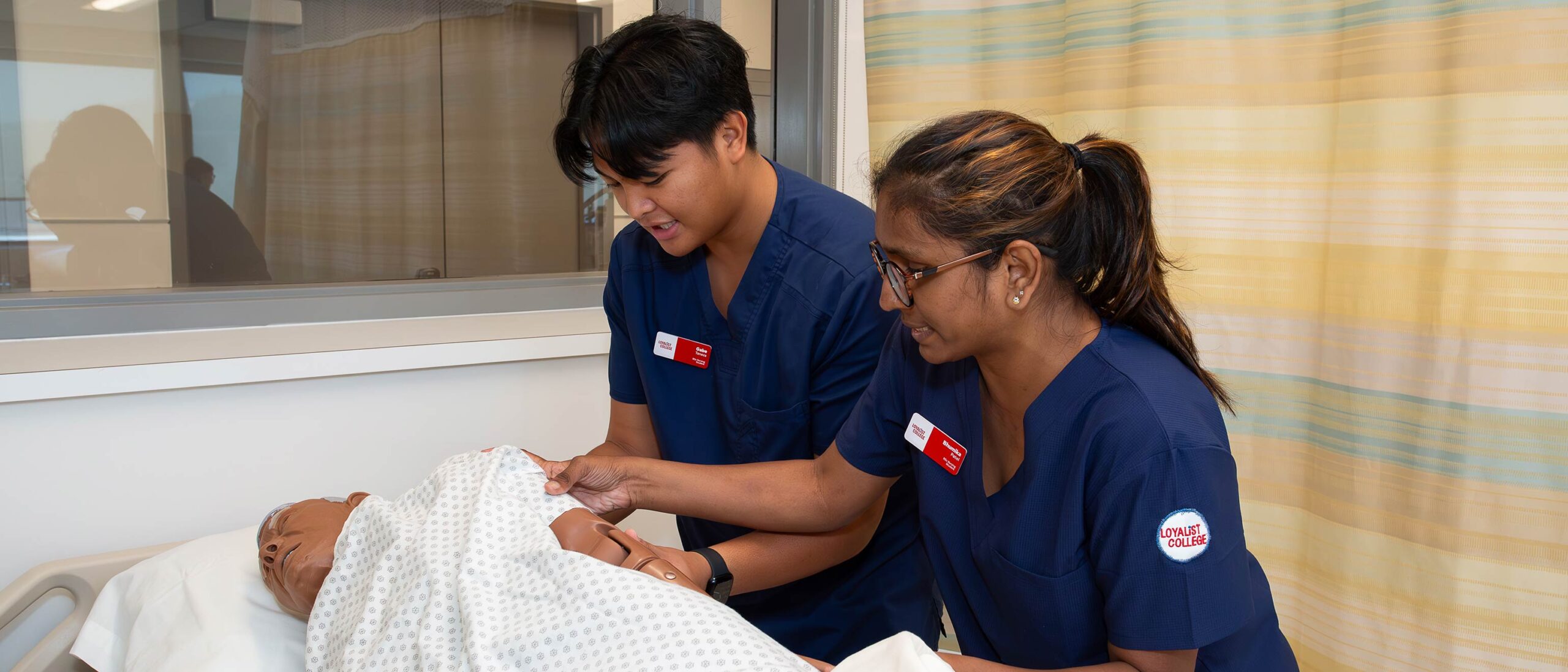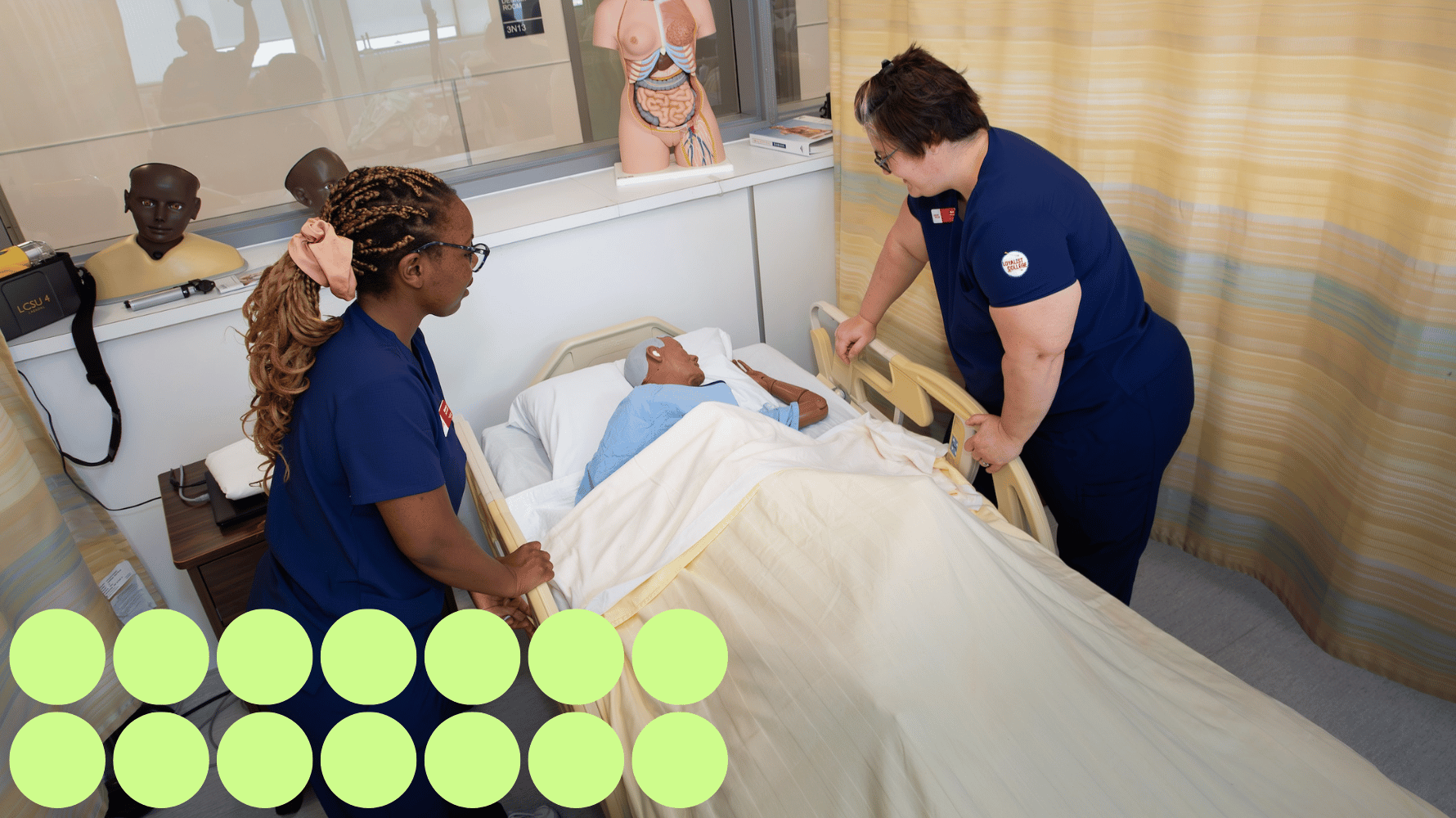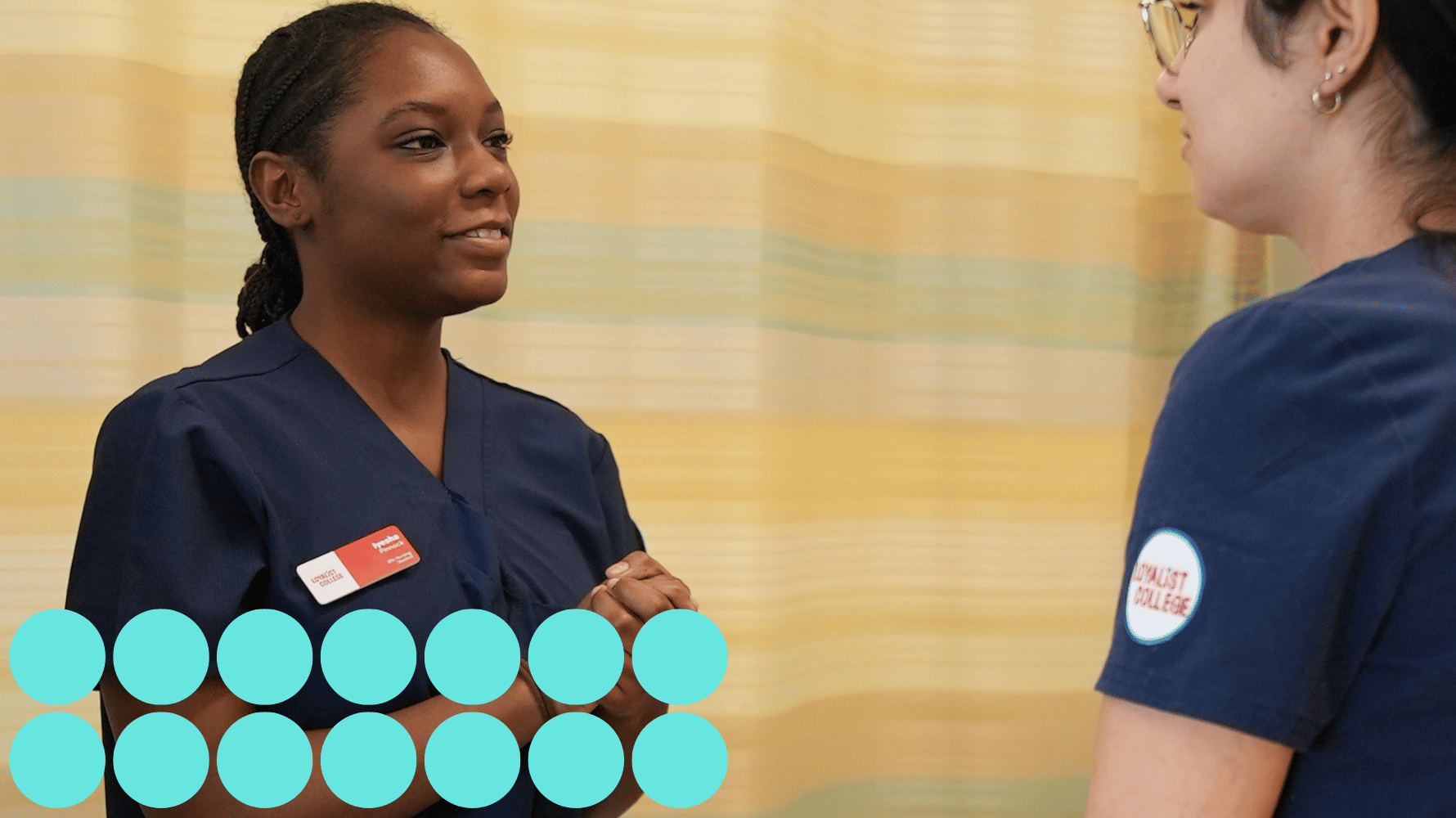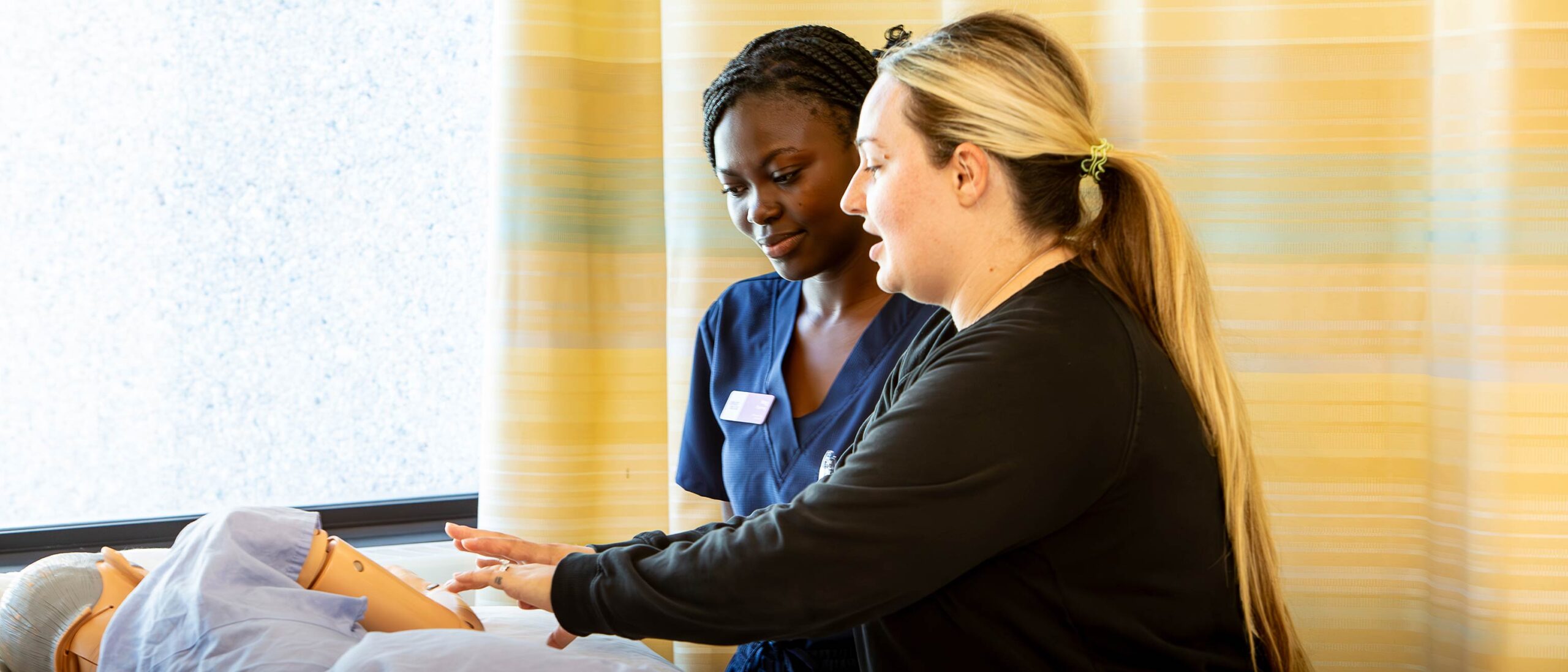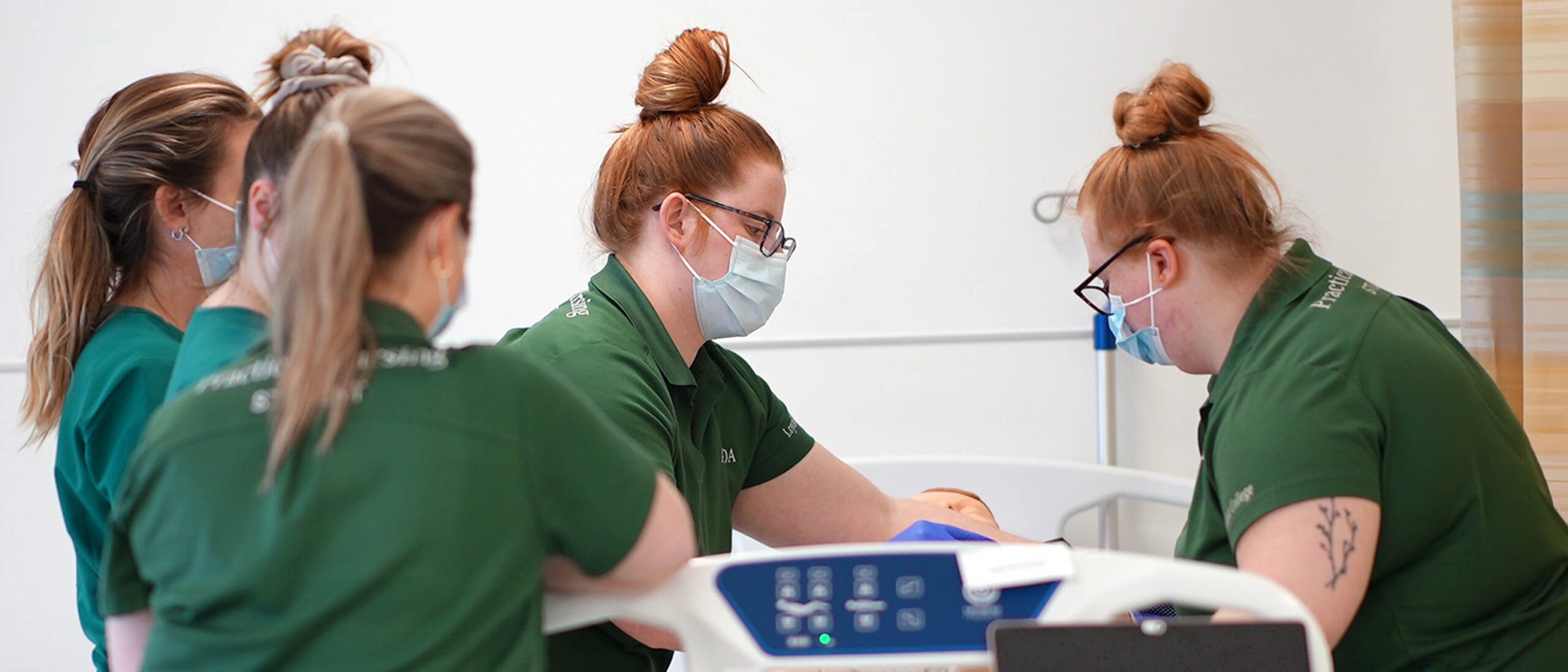Find your career
The Bay of Quinte region has a chronic shortage of registered nurses. The demand for nurses is anticipated to grow and accelerate over the next few decades. This pattern is projected throughout Ontario and across Canada as the demand for registered nurses increases in proportion to the country’s aging and growing population. Graduates of the Honours Bachelor of Science in Nursing degree program will find their skills are in-demand throughout the healthcare sector.
Upon successful completion of the six courses in the bridge semester curriculum, students will be eligible for entry into semester five of Loyalist’s Honours Bachelor of Science in Nursing (BScN) program.
Nurses provide care for patients in all conditions, at all stages of life – from prenatal health to palliative care – in diverse settings:
- In hospitals, specializing in surgical and post-surgical care; emergency; intensive care; care of the childbearing family and children; geriatrics; cardiovascular care; oncology (cancer); and mental health.
- In rehabilitation centres, hospices, primary care offices, nursing homes, and community agencies providing home care.
- As educators in public health units, schools, Telehealth, workplace wellness programs, family planning and baby wellness clinics.
- In research and progressive leadership positions in health and government.
Is it for you?
A career in Nursing is both challenging and rewarding. People of all ages can thrive in this program. They must be:
- Passionate about helping others.
- Inquisitive and eager to learn.
- Driven to make a difference in the health of individuals, families and communities.
- Proficient at math and science.
- Mature and reliable.
- Great communicators.
- Willing to work as part of a team.
- Willing to reflect and seek feedback.
- Prepared to work evenings and weekends.

